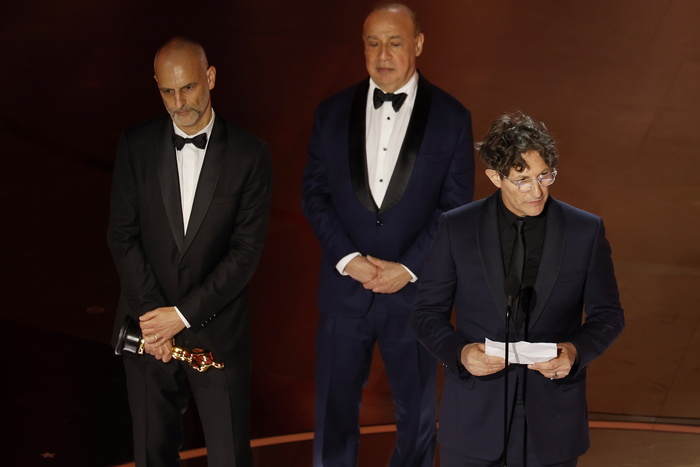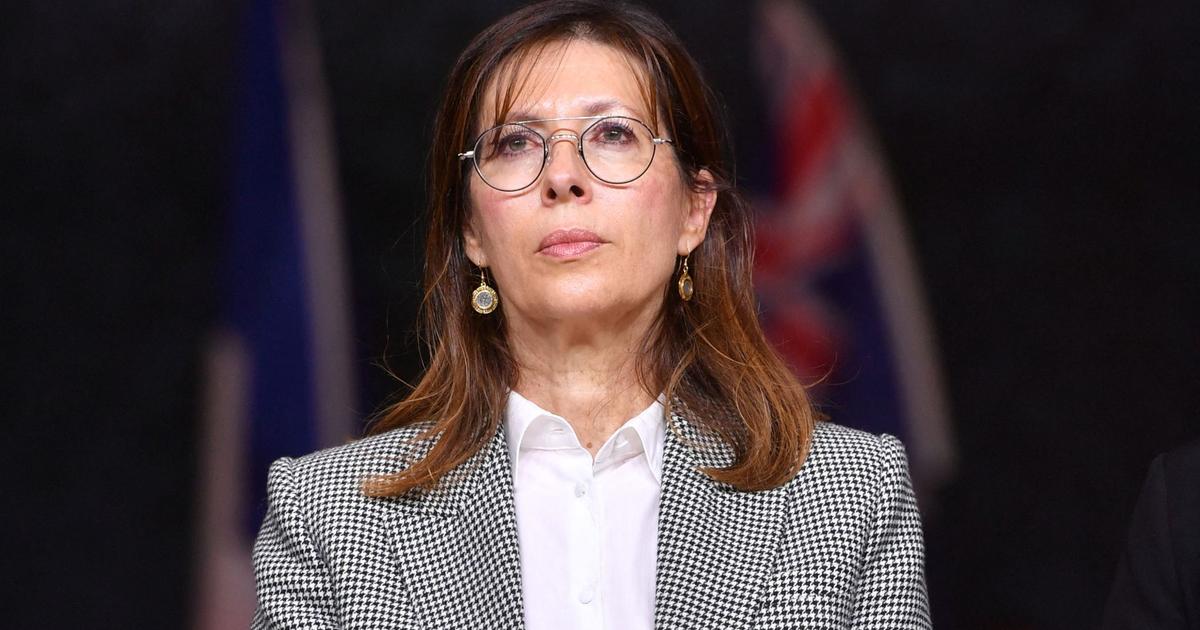Note to readers:
EL PAÍS offers all the content of the Planeta Futuro section openly for its daily and global information contribution on Agenda 203. If you want to support our journalism,
subscribe here.
2020 will be remembered among us as the year in which the new coronavirus pandemic spread throughout the world, reached Brazil and hit our sacred land, causing a huge crisis.
For many years, I have seen the arrival of various types of foreign invaders.
But today it saddens me even more to see with my own eyes people who take advantage of the critical situation caused by COVID-19 to carry out illegal activities within our indigenous territory, such as predatory fishing, for example, which is increasing due to that, due to the health crisis, the law no longer applies.
More information
1. Fever, balsa wood and pandemic in Achuar territory
2. Mining threatens the sacred center of the world
And this happens especially in the Pixaxa River, which delimits the limits of the Menkragnoti Indigenous Land, as well as in the Xingu River.
Our area was recognized by the Brazilian State and has been demarcated since August 20, 1993. Menkragnoti has approximately six million hectares of preserved tropical forest in the southwest of Pará, near the border with the state of Mato Grosso, in the municipality from Altamira, one of the most deforested areas in Brazil in recent years.
Many know, or at least have heard of, the great cacique Raoní, an emblematic figure in the struggle for the preservation of the Amazon rainforest and indigenous culture.
Others also know of the existence of the Kayapó people, but most are unaware of our history and reality.
In truth, we call ourselves mebêngôkre and not kayapó, as the white man refers to us.
We are a people of warriors, we prefer the borduna (a cylindrical wooden handcrafted weapon) to the bow and arrow, and we preserve our culture and rituals.
We speak our own language, Kayapó, and are divided between Metyktire, Gorotire, Kuben-krân-krên, Kôkraimôrô, Kararaô, Mekrãgnoti, Xikrin and Mekrãgnoti, occupying four indigenous lands that extend from the north of the state of Mato Grosso to the south and west of the state of Pará.
The continuous raids
Invasions of Menkragnoti Indigenous Land are not a problem that started in the pandemic.
For centuries we have tried to live peacefully in our natural habitat, without threats from non-indigenous society.
We do not want loggers, miners, or other invaders in our territories.
For us, our land is a sacred place, where our elders walked, where our traditional medicines grow, where our true
free market is
.
I imagine that many of these people do not know what the territory means to us.
Cacique Raoní and other leaders fought hard for demarcation and it is up to us to honor this fight and continue to protect these lands.
Cacique Raoní and other leaders fought hard for demarcation, and it's up to us to honor this fight and continue to protect these lands.
It is not "too much land for too little Indian," as some say.
We do not think about getting rich or having a better life using the land as farmers do, who pollute with poison and destroy the true wealth that is the forest.
We are already rich because we have everything we need to survive - water, hunting, fishing, fruits, vegetables and medicines - freely and for free, without having to exchange it for money.
What they call “too much land” - which is not much anymore - is actually very little compared to the amount of land we had before the arrival of the Portuguese in 1500. And we defend it not only thinking about ourselves, but also about the future.
One that is ours, of the youth and of the next generations.
Ancestral knowledge
We defend the collective, the animals, our food, the old villages of those who came before us, our ancestral medicine.
Also the teachings of the elders, who convey to us a knowledge that goes beyond what any
kuben
[white man] could bring to the indigenous peoples.
Only a few can start as
pajés
[shamans] in long and deep processes, of many years.
And the practice only begins after being a grandparent.
It is not like taking a college degree.
Everything is learned orally and in practice.
The apprentice must be humble with the shaman throughout the process, until it is time to demonstrate the knowledge acquired.
Either you show you're ready, or you won't get another chance.
When someone needs a cure, the person's family looks to the shaman for treatment.
He examines the person, asks about symptoms, and then knows what is going on.
In the forest is where he looks for
medicine
and takes it home to prepare it.
The vigilantes of the territory and the arrival of the covid-19
To try to control logging invasions, predatory fishing and other threats to which we are subject, we have created a surveillance base on the edge of the Menkragnoti Indigenous Land, where the Pykatoti village is located, which controls it.
Each week, six warriors from six villages take turns surveying the territory for possible incursions.
But that does not mean that we have managed to reduce invasions and predatory fishing.
We have frequently come across unauthorized people fishing in the Pixaxa River.
We approached them and explained our role: inspecting the perimeter every week to expel non-indigenous strangers and inform them that carrying out this type of activity in our territory is a crime.
We have frequently come across unauthorized people fishing in the Pixaxa River.
We approach them and explain our role to them
This year, due to covid-19, we held a meeting in the village Kubenkàkre (KBK) - where I was born, grew up and where I live until today - in which there was a consensus to suspend the activities of the surveillance base during this year, as a way to prevent the new coronavirus from reaching people through this operation.
But, unfortunately, the disease broke into the village.
The question we still ask ourselves is who brought us this virus.
We have not the answer.
The only ones who had access were health professionals (Special Indigenous Health Department, DSEI Río Tapajós) who came in light planes from Itaituba to transport patients to city hospitals.
Already with cases of covid-19 in most of the population centers, two indigenous people from Pykatoti, where the surveillance base is located, decided to open it again.
There were many reports of invasion and the Pixaxa River was getting dirtier, something that hadn't happened before.
With the base operating normally, Pykany village was the first to make a group of six available for a week to carry out surveillance activities.
I was part of it.
In a week we went up the Pixaxa River in search of buchas [small makeshift bridges] that the invaders built over the waters to gain access, through tractors and logging trucks, to the limits of the protected lands.
But we did not find, we only saw invading fishermen whom we asked to leave without any aggression.
We explain the importance of the law that does not allow fishing in our rivers.
And they left.
We returned to our Pykany village and, after five days, myself and two other colleagues who were with me began to feel symptoms of Covid-19.
The first test was negative, but after 10 days we had a second test and discovered that we really did have the disease.
We were infected when we were at the base for a week, as those responsible for the surveillance of the territory and we came into contact with people from outside.
The pandemic may be something new for the
Kuben
, but not for us, who had thousands and thousands of indigenous people killed during the white man's invasion, known as “contact”.
Before, our elders lived isolated in the forest and did not have certain illnesses like flu, cough, diarrhea and so many other symptoms that my grandparents had never experienced before.
Then came the measles.
For us, it was like a pandemic within the territory: it killed most of the population.
There was no traditional medicine treatment, as we had never seen anything like it.
Before, our elders lived isolated in the forest, and they did not have diseases.
With the kuben came the flu, cough, diarrhea and so many other symptoms that my grandparents had never experienced before
Many had to be isolated and we learned a lot from this experience to unite in the fight against the new coronavirus today.
But instead of realizing that they have much to learn from us, the Kuben remain stubborn, with no solutions, believing that they have more knowledge than the indigenous people.
I treated the symptoms of covid-19 with teas prepared by shamans based on leaves, vines and roots of the forest.
At the beginning of the pandemic, there were no medicines for treatment in the village health posts, so the paramedics had to send infected patients to the city.
But the stories that came to us from the hospitalized were not positive, so those who were infected later preferred not to be transferred.
In the end, most of the people in Menkragnoti Indigenous Land fell ill with covid-19.
There are 282, according to the DSEI Rio Tapajós bulletin, updated on September 18.
They all took the same as me and I can assure you that no one died.
No one.
We will continue to resist
For those who do not know our reality, we live among the Brazilian fauna and, for some years, we have been persecuted by the Government of Jair Bolsonaro.
There are plans for large projects in (or around) our lands, because we have a lot of wealth within the area demarcated as Menkragnoti Indigenous Land.
They want to explore the terrain and the people who live there.
At whatever price.
They think that there is no life in that place, but there is.
And a lot!
We depend on the forest and the river.
We are part of the forest and the forest is part of us.
We will continue to resist.
To fight for our rights, we created our own non-governmental organization, called the Kabu Institute, which performs the function that the National Indian Foundation (FUNAI) should carry out, such as surveillance and control of the territory.
For us, FUNAI no longer exists.
Today, it is commanded by politicians favorable to extractivism and the interests of agribusiness.
We are the ones who will always continue to defend our territory, because we are the greatest guardians and protectors of the jungle, of the Amazon, of Brazilian biodiversity.
It is time for non-indigenous people to recognize that we are the first inhabitants of these lands.
We are not the ones occupying their lands, which could be productive.
It is you who have invaded us and are living in our house.
It is necessary that they recognize and respect the indigenous peoples, as well as our history in this territory, which you call Brazil.
This story is part of the series "Destellos del Amazonas", produced in the Amazon by
DemocracyAbierta
.
The series is supported by the
Rainforest Jounalism Fund
of the Pulitzer Center.
We appreciate the testimonies and graphic material contributed by members of the communities portrayed in this story, who remain isolated due to Covid-19.
FUTURE PLANET can follow on
,
and
, and subscribe
here
to our 'newsletter'
.








